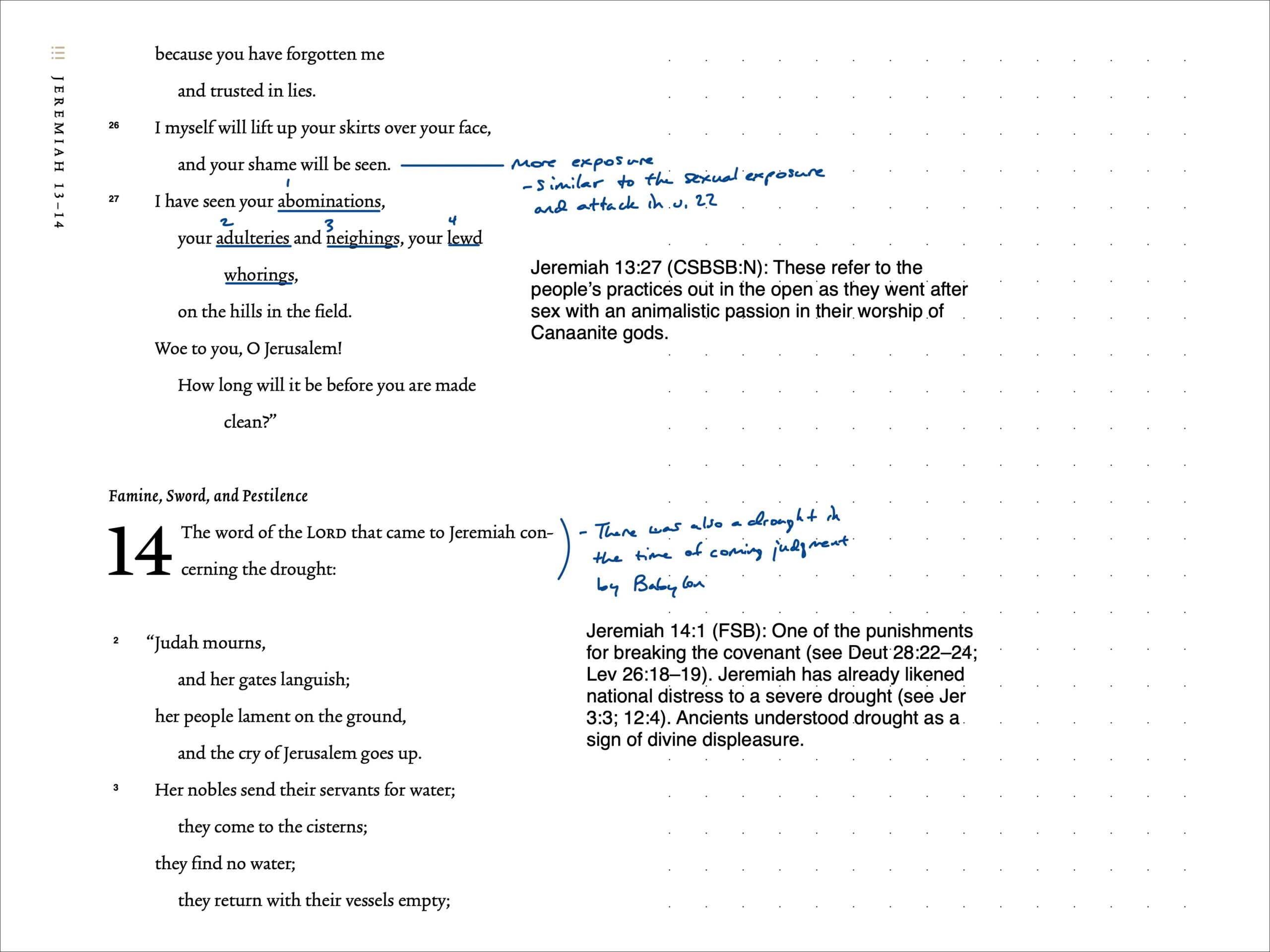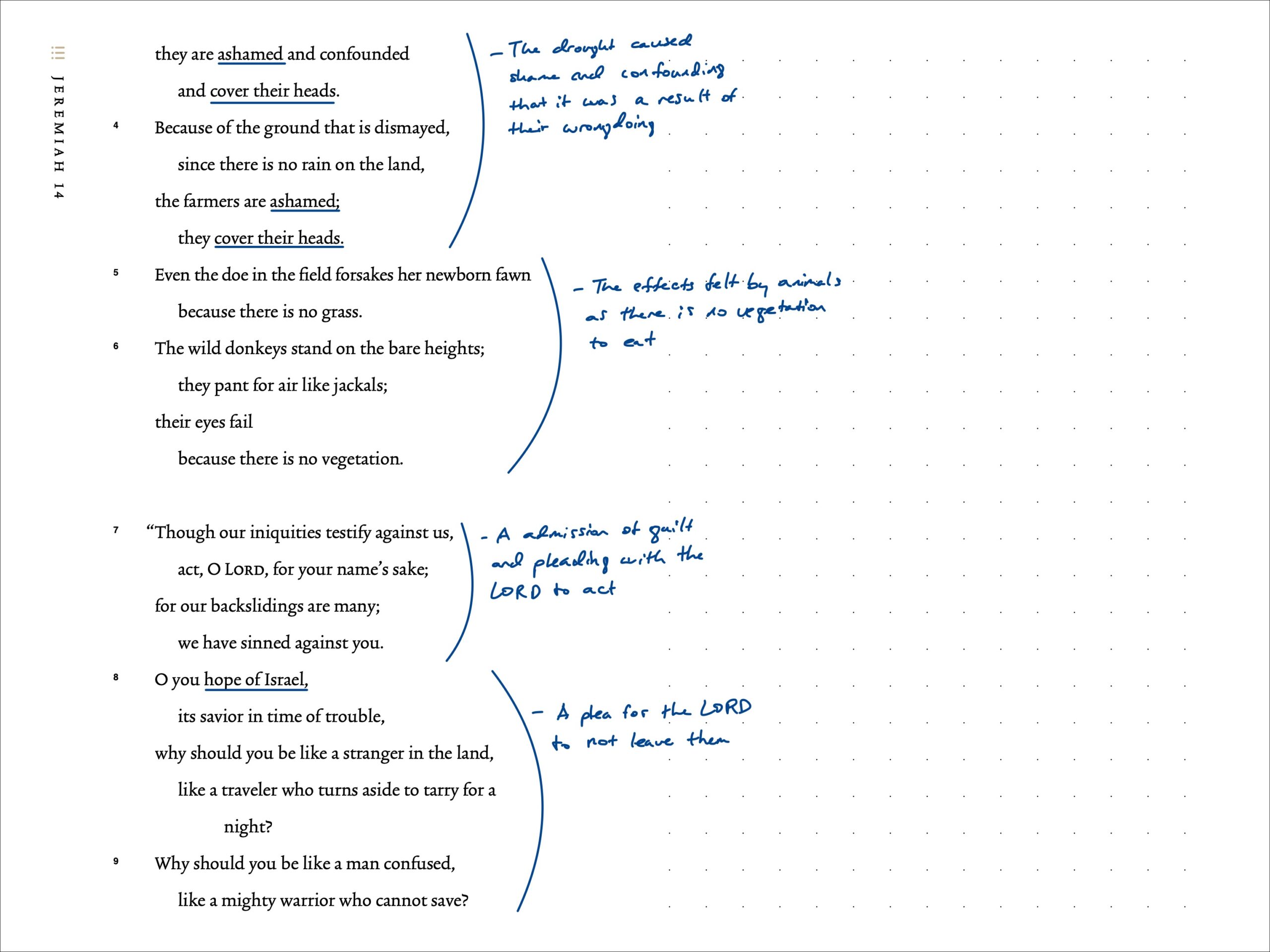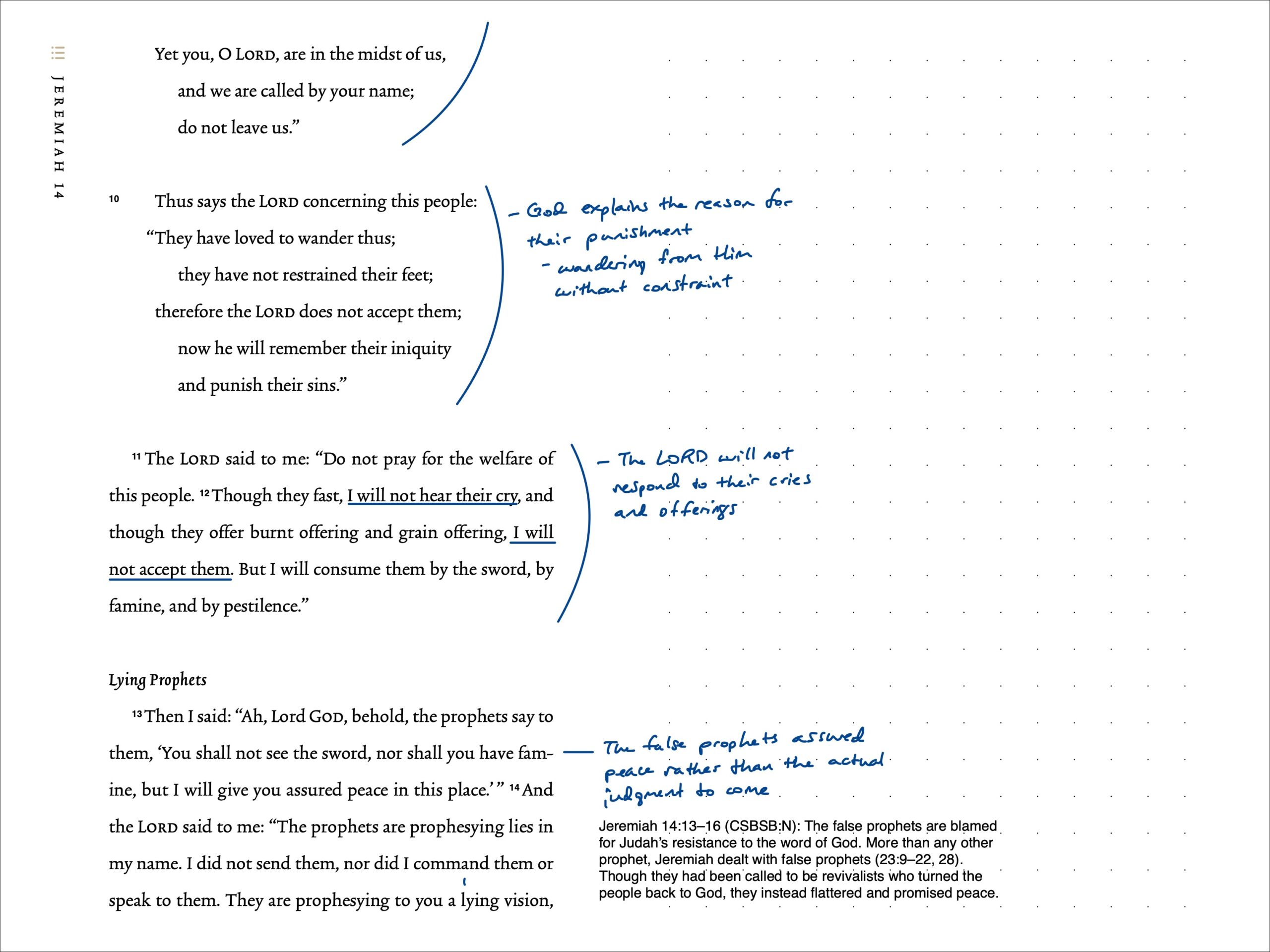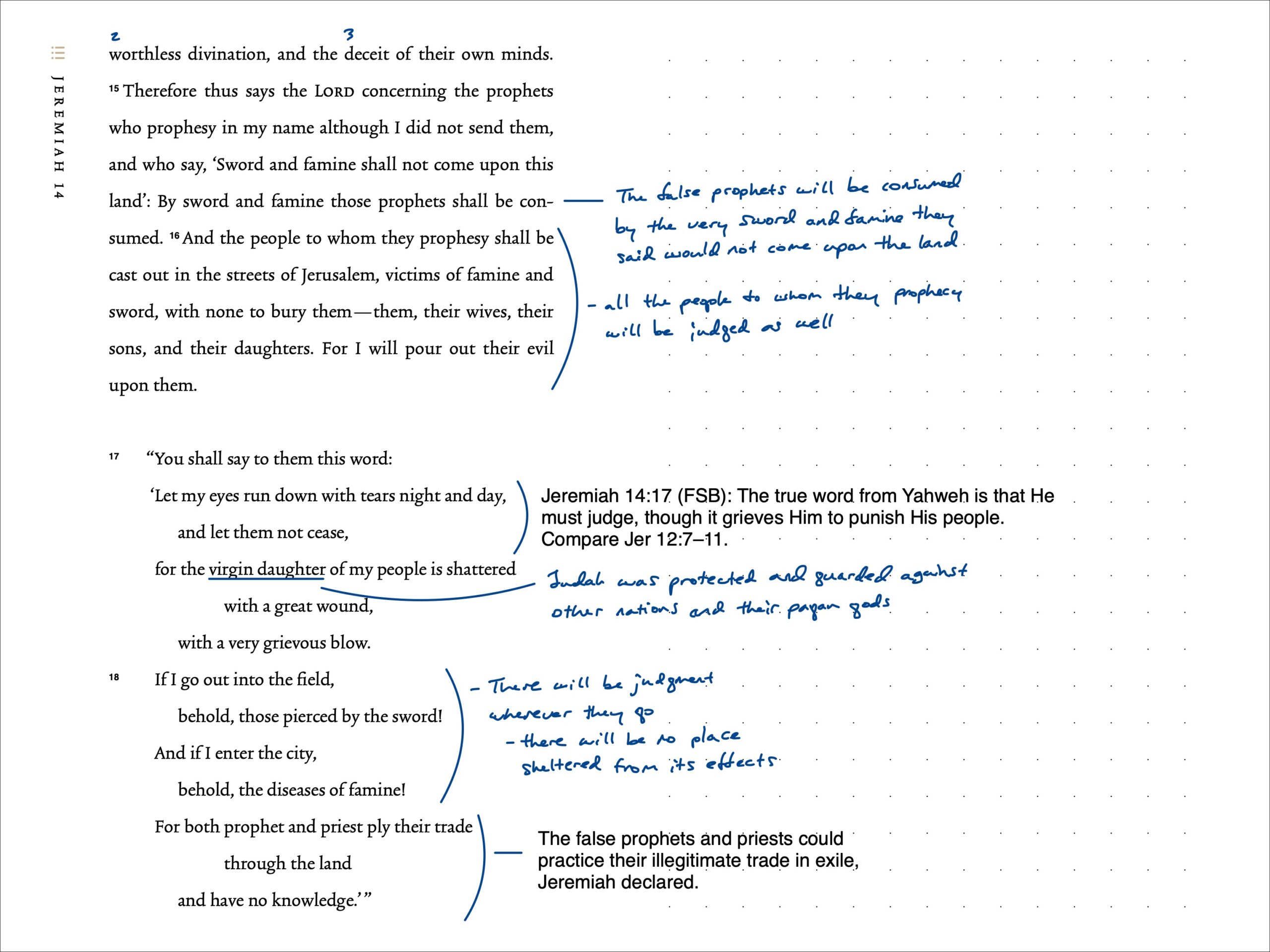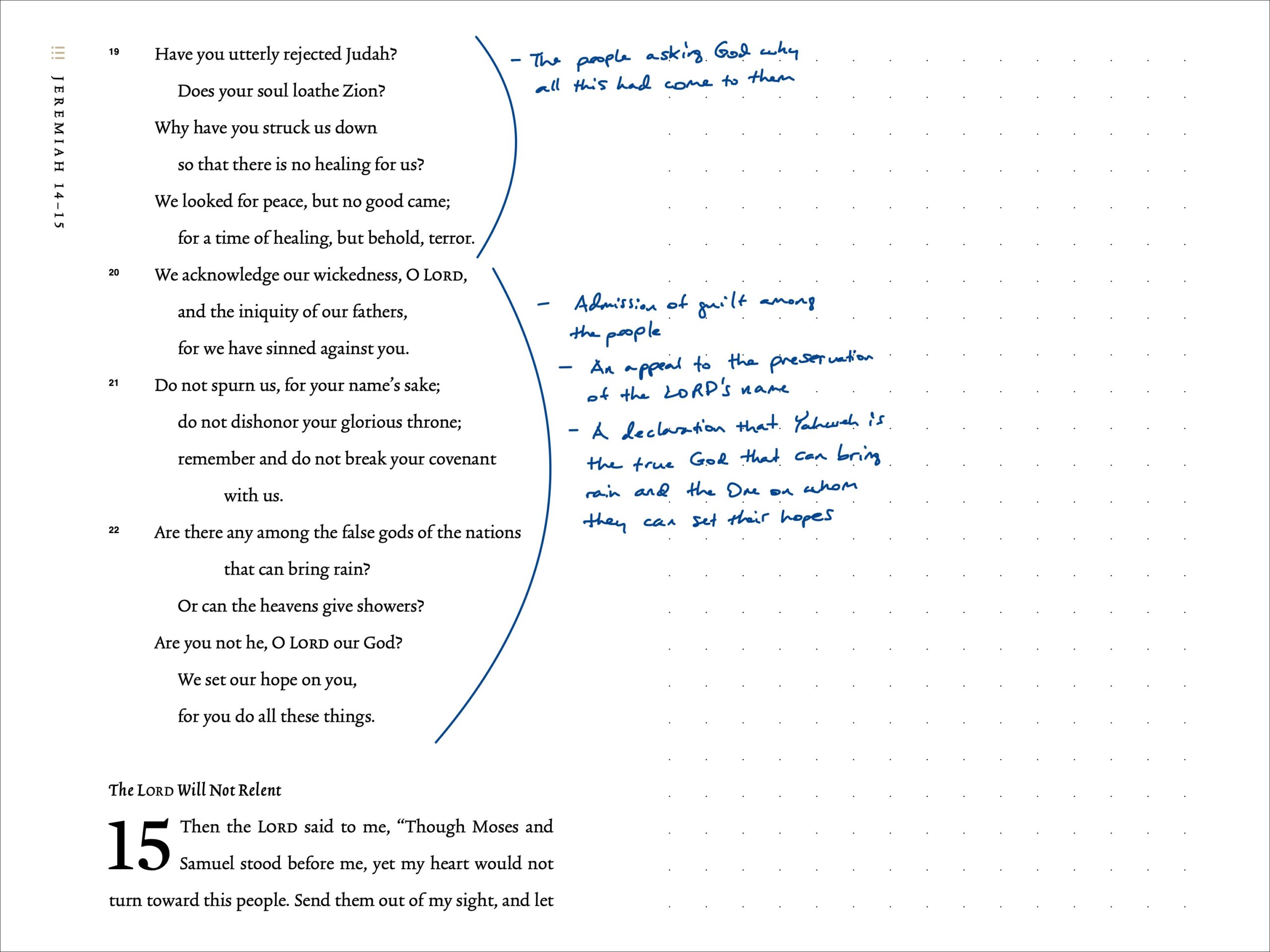| Date | Version | Reading Plan |
|---|---|---|
| @July 6, 2023 | ESV (2016) | ESV Prophets Plan 2023 |
Pericopes
- Famine, sword and pestilence
- Lying prophets
Notes
The chapter opens with a drought on the land and the mourning of Judah. Drought, blight and mildew are some of ways the LORD would strike in punishment and this would have been understood it as a sign of divine displeasure. The drought causes shame and confounding among the people and they “cover their heads” (Jer. 14:4).
In Jer. 14:5-6, the effects are felt by animals who have no vegetation to eat, the “wild donkeys stand on the bare heights, they pant for air like jackals” (Jer. 14:6).
In Jer. 14:7-9, the people admit their guilt and backsliding before the LORD and plea for Him not to leave them. That the LORD would abandon them is far worse than any drought, famine or attack by foreign nation. God’s response and explanation of punishment comes in Jer. 14:10, where He tells them that they had “loved to wander” and not “restrained their feet”.
Jer. 14:13 begins a discourse on the false prophets of the day, those who said they “shall not see the sword, nor shall you have famine”. Among Biblical prophets, Jeremiah dealt with false prophets the most (see Jer. 23:9-22, Jer. 23:28). These prophets had been called to turn the people back to God but instead flattered them and promised peace. They spoke of how “Sword and famine shall not come upon this land”, but this would be turned on their heads as these would be the ways in which the prophets themselves would be consumed (Jer. 14:15).
In Jer. 14:17-18, the LORD gives Jeremiah a word to give to the people, that it grieves Him to punish them but it must be done. The judgment will be felt wherever they go, in the field or in the city. There will be not shelter from its effects.
The final verses (Jer. 14:19-22) are a plead for God’s help in their time of drought and desperation. In this, we see 1) an admission of guilt, 2) an appeal to the preservation of the LORD’s name and 3) a declaration that Yahweh is the true God that can bring rain and on whom they can set their hopes.
Application
So much of our loving, heavenly Father shines through in this chapter. With great sorrow, He metes out punishment to rectify wickedness in order to turn His people back to Himself. The further removed they are from Him, the more painful and upsetting the correction will seem.
It is much the same for us as we face trials of various kinds. There will be difficult seasons and circumstances in which we feel unfairly placed until we see their effect of increased closeness and reliance on our Lord. It is a grace of God to be shown our powerlessness and our inability to persevere apart from Him. With this posture, we will see how every hardship presents an opportunity to be drawn toward Him in full surrender.
Scripture Journal Notes
Commentaries & Resources
- ESV Study Bible. (Wheaton, IL: Crossway, 2008)
- Faithlife Study Bible (Lexham Press, 2016)
- Believer’s Bible Commentary (Thomas Nelson, 2016)
- CSB Study Bible Notes (Holman Bible Publishers, 2017)
- Matthew Henry’s Commentary on the Whole Bible (Guardian Press, 1976)
- The Bible: A Reader’s Guide (Sterling Publishing, 2011)
- The Infographic Bible (Zondervan, 2018)
- ESV Digital Scripture Journal (Crossway, 2019)
